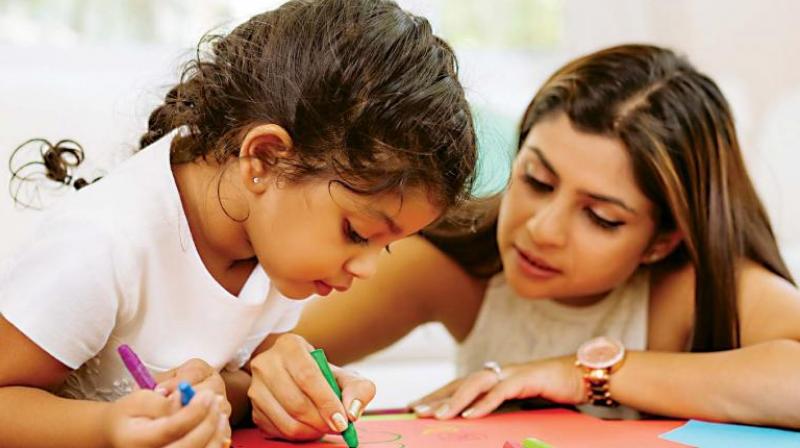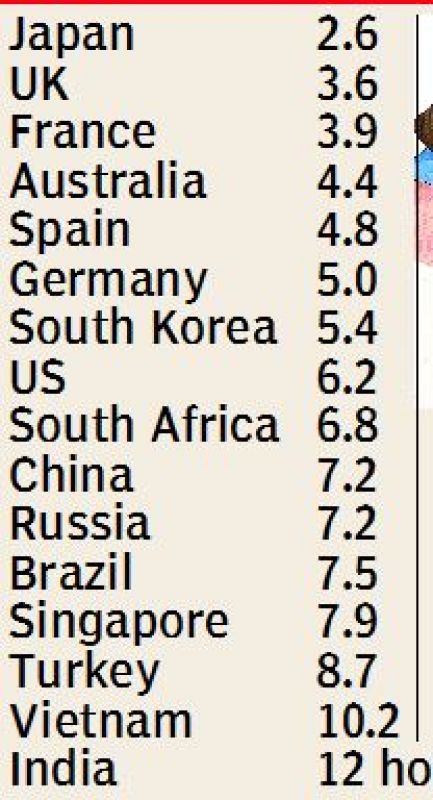Indian parents find children's homework rewarding

Hyderabad: Parents in countries like advanced countries like Japan spend 2.6 hours a week helping their children do homework, and 3.6 hours in the UK.
In countries grouped with India in BRICS, South African parents spend 6.8 hours a week to assist their children, 7.2 hours in China and Russia and 7.5 hours in Brazil. The average in Turkey is 8.7 hours, and Vietnam 10.2 hours a week.
 Hours spent with kids
Hours spent with kids
In India, parents spend 12 hours a week — the highest among all — helping their kids complete their homework. That is about two hours each day for six days. Is it because parents in India are making up for lack of attention paid by teachers in crowded classrooms. Statistics show that may not be the case.
Unesco says the student-teacher ratio in primary schools in Japan between 1971 and 2015 was 21.45. In 2015, there were 21.1 students per teacher in primary schools in England.
The global average student-teacher ratio in 2015 was 23.4:1. It was 16.3:1 in China, 20.9:1 in Brazil, 19.8:1 in Russia and 33.6:1 in South Africa
India does not fare too poorly. According to the Economic Survey 2017, the student-teacher ratio in primary schools stood at 23.1 in 2016-15.
According to experts, this is because Indian parents are over-possessive. They do not want their children to take a risk or make mistakes. They said it also had to do with the Indian education system relying on rote learning rather than based on thought.
“Home work should be qualitative rather than quantitative. We are rather inclined to quantity. If we improve the methodology teaching and learning in the classrooms, homework will decrease and it will be more focussed on practice and research,’’ said P. Obul Reddy Public School principal Anjali Razdan.
She said the system in other countries includes these ingredients, so everything falls in place with all the stakeholders. She said the teacher training was outdated, and conventional and “very much suitable for mediocrity.” She suggested evolving an IAS-like cadre for education to harvest the best minds for education.
NIT-Warangal director Prof. N.V. Ramana Rao blames parents for this. “Parents in India believe that there is nothing more than education. This is leading to neglect of other skills and talents. It is also affecting their health.”
Education expert N. Narayana calls parents spending most of their time in helping students a symptom of unscientific education. “The overloaded syllabus leads to more home work. NCERT’s move to reduce 50 per cent of the syllabus may be give relief to parents.”
Prof. Venkata Gaddam Reddy, another education expert, claims that Asian countries culturally value school education more than that imparted in the university.
“Middle-income group parents from developing countries tend to spend more time in helping kids on their homework and projects. I am of the opinion that kids who attend mature school systems need less help compared to schools in developing countries,” he said.

